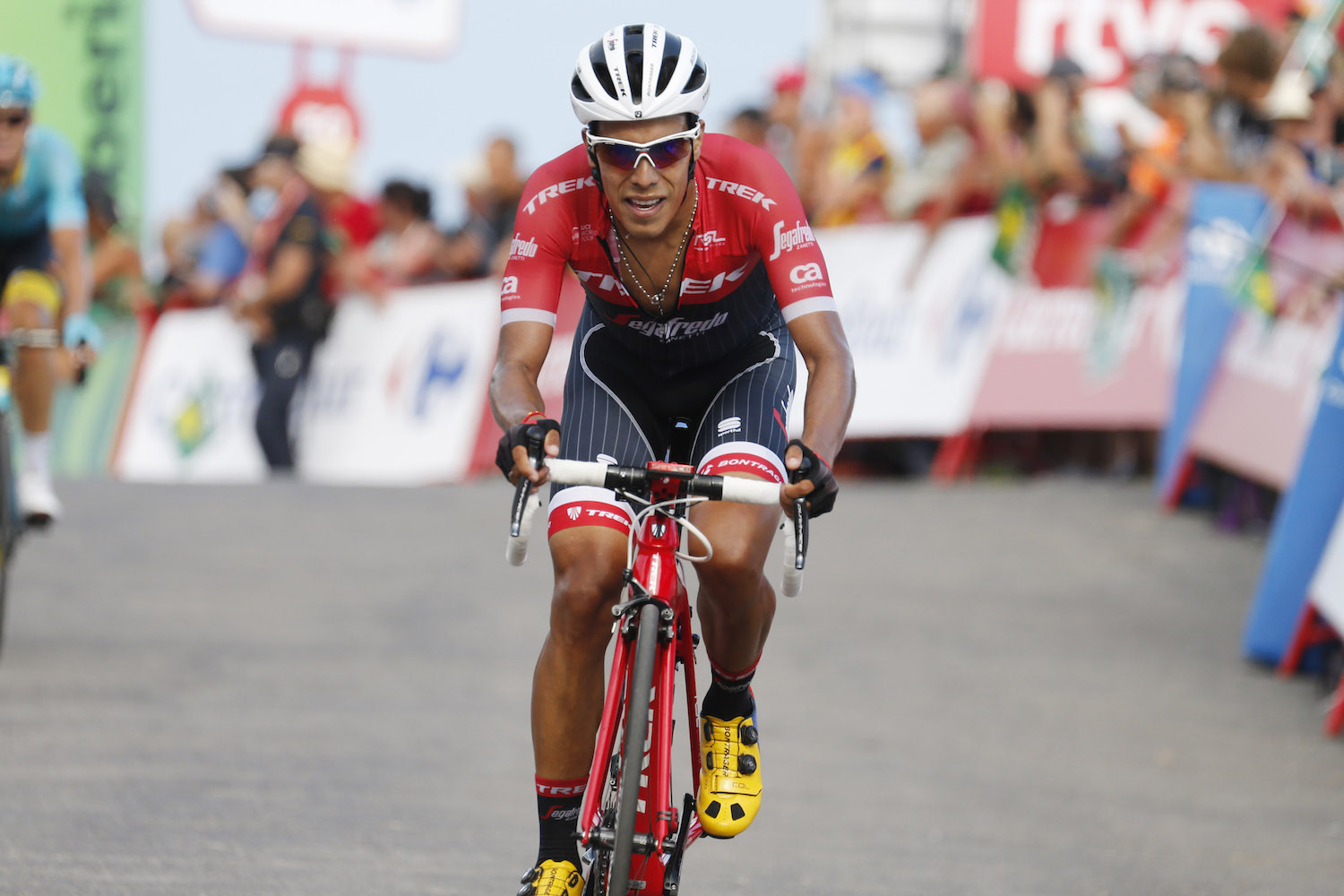Jarlinson Pantano retires in wake of EPO positive but says he's innocent
The Colombian says he doesn't see the point in spending his money to fight the UCI verdict


The latest race content, interviews, features, reviews and expert buying guides, direct to your inbox!
You are now subscribed
Your newsletter sign-up was successful
Former Tour de France stage winner, Jarlinson Pantano is retiring from cycling seeing no way to defend himself against an EPO anti-doping positive test earlier this year.
He raced for WorldTour team Trek-Segafredo since 2017, joining after winning the Culoz stage in the 2016 Tour with Team IAM Cycling. However, a drugs test showed positive for the blood booster drug earlier this year and led to him being fired.
Pantano says that he is innocent but that he lost the will to fight the case. On Monday, he said that he is retiring from the sport.
"I never thought I'd end my career like this. I feel cheated," he said in an interview posted on Facebook. "I am not asking anyone to forgive me because I am innocent."
The 30-year-old spoke on a balcony in Colombia with journalist Jairo Enrique Rodriguez Pacheco, far from the cycling world. He raced through the 2019 Paris-Nice won by countryman Egan Bernal (Ineos), before beginning the first stage of the Volta a Catalunya, which he did not finish. That was the end of his career.
A couple of weeks later, on April 15, the UCI governing body said that he tested for EPO in an out-of-competition test on February 26. Trek-Segafredo immediately sidelined him.
He had said that he was waiting and wanting the case to be resolved, but now says the fight is not worth the money.
The latest race content, interviews, features, reviews and expert buying guides, direct to your inbox!
"I've decided to not keep fighting against the UCI because it costs a lot of money," he explained. "I don't think it's worth it to spend all of my family's money for an answer they will give me in one or two years."
Until 2000, there was not a test for EPO. Instead, high hematocrit values indicted potential drug use. Such a test stopped Marco Pantani when he was leading the 1999 Giro d'Italia.
The test rolled out at the Olympic Games in Sydney, and reduced the rampant EPO use in the peloton. However, some believe that athletes now micro-dose with it to fly under the radar of detection.
For Pantano, the origins of the EPO found his body this February is a mystery.
"EPO is injected, so I have no idea how it got into my body," he continued.
"There are a lot of things that don't make sense. I gave the positive on February 26, but I had controls on March 10 and January 21, but neither of them was positive. I have more than 60 controls with the biological passport, the levels are the same and everything equal.
"I always had zero-tolerance and I had a two-year contract, so I had no reason to do it."
Pantano had re-signed with Trek-Segafredo in 2018 for two years, for 2019 and 2020, at the time when they were reinforcing there roster for Richie Porte and Bauke Mollema.
His test follows those recent EPO positives by Belarusian Kanstantsin Siutsou (Bahrain-Merida) and Frenchman Rémy Di Gregorio (Delko Marseille Provence KTM) in 2018.
Gregor Brown is an experienced cycling journalist, based in Florence, Italy. He has covered races all over the world for over a decade - following the Giro, Tour de France, and every major race since 2006. His love of cycling began with freestyle and BMX, before the 1998 Tour de France led him to a deep appreciation of the road racing season.
